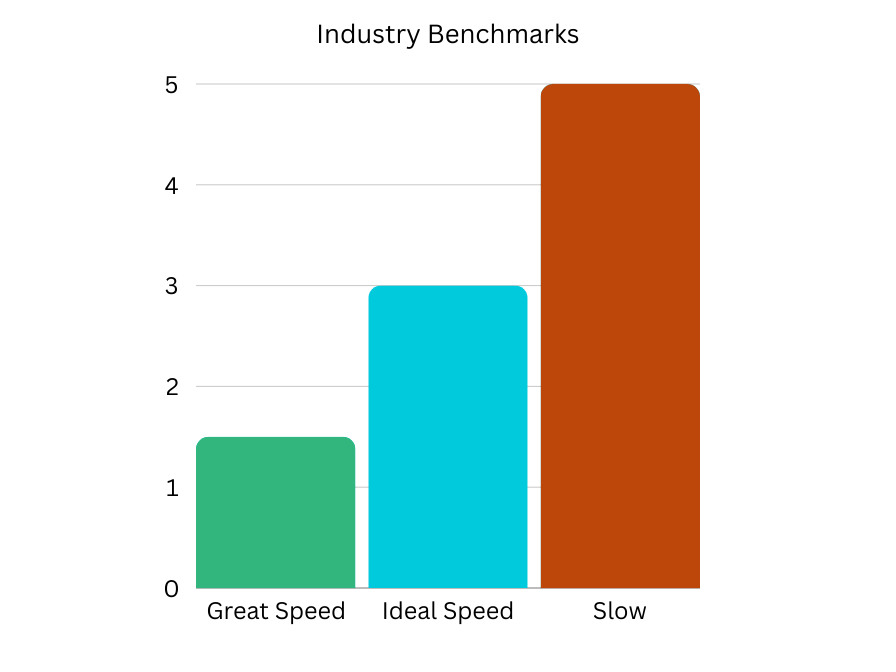At the end of 2024, a fast website is necessary; it is not a luxury anymore. If you have ever been annoyed by a website that takes a long time to load, you are aware of how fast users become disinterested. Businesses may lose clients and see lower revenue because of less seals. But why precisely should businesses put speed first? Let's look at the primary reasons and how faster websites affect success.

In a world dominated by instant gratification, your website’s speed plays a critical role in shaping user perceptions and experiences. Studies show that 40% of users abandon a site that takes longer than 3 seconds to load. This alone underscores the importance of speed, but its influence stretches far beyond user frustration. It directly impacts search engine rankings, customer loyalty, and overall business success.
The Impact of Website Speed on SEO
Search engines like Google have made website speed a pivotal ranking factor.
How Website Speed Affects Rankings
-
Core Web Vitals:
Google evaluates speed using metrics like Largest Contentful Paint (LCP), First Input Delay (FID), and Cumulative Layout Shift (CLS). -
Crawl Efficiency:
Faster websites allow search engine crawlers to index more pages efficiently, improving visibility. -
Bounce Rates:
A slow-loading page increases bounce rates, signaling poor user experience to search engines.

Optimizing for speed ensures you’re not just pleasing users but also search engine algorithms.
Benefits of a Faster Website
1. Increased User Satisfaction
- Seamless Experience: A quick-loading website keeps visitors engaged and encourages exploration.
- Reduced Frustration: Waiting for pages to load is a surefire way to alienate users.
2. Improved Conversion Rates
- E-commerce Example: A 1-second delay can reduce conversions by 7%. Faster sites encourage purchases and form submissions.
- Building Trust: Customers trust businesses that invest in a seamless digital experience.
3. Enhanced Mobile Experience
- With 60%+ of web traffic coming from mobile devices, speed is non-negotiable. Optimized sites perform better across various devices and screen sizes.

Disadvantages of Slow Websites
Slow websites come with a host of drawbacks, including:
- Lost Revenue: Potential customers often abandon their carts if pages load too slowly.
- Damaged Reputation: Users associate a slow website with poor business credibility.
- SEO Penalties: Search engines deprioritize slow websites, lowering organic visibility.
Speed Metrics: What’s Acceptable?
- Ideal Speed: Less than 3 seconds.
- Great Speed: Less than 1.5 seconds.
- Slow: More than 5 seconds.

These thresholds set user expectations, particularly in competitive industries like e-commerce or tech.
Advantages vs. Disadvantages
| Advantages of a Faster Website | Disadvantages of a Slow Website |
| Higher user engagement | Increased bounce rates |
| Improved search engine rankings | Lower SEO visibility |
| Boost in sales and conversions | Revenue losses |
| Better mobile optimization | Frustrated users |
| Enhanced reputation and credibility | Negative brand perception |
| Lower hosting and bandwidth costs | Higher operational costs over time |
Key Statistics: Website Speed in Numbers
The following pie chart illustrates the percentage of users who abandon a website based on loading time:
- 1 Second Load Time: 50% engagement retained
- 2 Seconds: 30% engagement retained
- 3+ Seconds: Only 20% of users remain

Tips to Optimize Website Speed
1. Optimize Images
Compress and use next-gen formats like WebP to improve load times.
2. Minimize HTTP Requests
Reducing the number of requests speeds up page loading. Combine CSS and JavaScript files where possible.
3. Leverage Browser Caching
Caching ensures frequently accessed data loads instantly.
4. Use Content Delivery Networks (CDNs)
CDNs distribute content globally, reducing latency.
5. Upgrade Hosting Services
Opt for faster, scalable hosting solutions like VPS or dedicated servers.
A faster website is more than a technical asset—it’s a competitive advantage. Businesses can optimize load times to enhance user experiences, improve SEO, and increase conversions. The trade-offs are minimal compared to the immense benefits of speed. Prioritizing website performance isn’t optional in today’s digital landscape; it’s essential for growth and sustainability.
Do you need a custom website?
Contact us to get premium website service.
FAQs
1. Why is website speed important for SEO?
Website speed affects user experience and search engine rankings, making it critical for organic visibility.
2. What is a good website loading speed?
Aim for a loading time under 3 seconds for optimal performance and user satisfaction.
3. How can I test my website’s speed?
Tools like Google PageSpeed Insights, GTmetrix, and Pingdom are excellent for measuring website performance.
4. What are the main causes of slow websites?
Unoptimized images, outdated hosting, excessive plugins, and heavy scripts often lead to slower load times.
5. Can improving website speed boost sales?
Yes, a faster website enhances user experience and trust, directly impacting conversion rates and sales.
